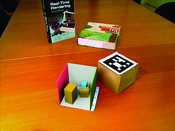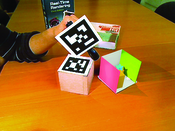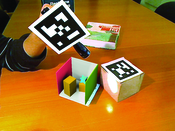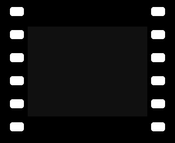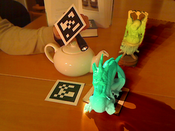Information
- Publication Type: Conference Paper
- Workgroup(s)/Project(s):
- Date: October 2010
- Note: Best Paper Award!
- Location: Seoul
- Lecturer: Martin Knecht
- Booktitle: Proceedings of the 2010 IEEE International Symposium on Mixed and Augmented Reality (ISMAR 2010)
- Conference date: 13. October 2010 – 16. October 2010
- Pages: 99 – 107
- Keywords: Instant Radiosity, Differential Rendering, Real-time Global Illumination, Mixed Reality
Abstract
In this paper we present a novel plausible realistic rendering method for mixed reality systems, which is useful for many real life application scenarios, like architecture, product visualization or edutainment. To allow virtual objects to seamlessly blend into the real environment, the real lighting conditions and the mutual illumination effects between real and virtual objects must be considered, while maintaining interactive frame rates (20-30fps). The most important such effects are indirect illumination and shadows cast between real and virtual objects.Our approach combines Instant Radiosity and Differential Rendering. In contrast to some previous solutions, we only need to render the scene once in order to find the mutual effects of virtual and real scenes. The dynamic real illumination is derived from the image stream of a fish-eye lens camera. We describe a new method to assign virtual point lights to multiple primary light sources, which can be real or virtual. We use imperfect shadow maps for calculating illumination from virtual point lights and have significantly improved their accuracy by taking the surface normal of a shadow caster into account. Temporal coherence is exploited to reduce flickering artifacts. Our results show that the presented method highly improves the illusion in mixed reality applications and significantly diminishes the artificial look of virtual objects superimposed onto real scenes.
Additional Files and Images
Additional images and videos
Additional files
 paper:
Differential Instant Radiosity for Mixed Reality
paper:
Differential Instant Radiosity for Mixed Reality
Weblinks
No further information available.BibTeX
@inproceedings{knecht_martin_2010_DIR,
title = "Differential Instant Radiosity for Mixed Reality",
author = "Martin Knecht and Christoph Traxler and Oliver Mattausch and
Werner Purgathofer and Michael Wimmer",
year = "2010",
abstract = "In this paper we present a novel plausible realistic
rendering method for mixed reality systems, which is useful
for many real life application scenarios, like architecture,
product visualization or edutainment. To allow virtual
objects to seamlessly blend into the real environment, the
real lighting conditions and the mutual illumination effects
between real and virtual objects must be considered, while
maintaining interactive frame rates (20-30fps). The most
important such effects are indirect illumination and shadows
cast between real and virtual objects. Our approach
combines Instant Radiosity and Differential Rendering. In
contrast to some previous solutions, we only need to render
the scene once in order to find the mutual effects of
virtual and real scenes. The dynamic real illumination is
derived from the image stream of a fish-eye lens camera. We
describe a new method to assign virtual point lights to
multiple primary light sources, which can be real or
virtual. We use imperfect shadow maps for calculating
illumination from virtual point lights and have
significantly improved their accuracy by taking the surface
normal of a shadow caster into account. Temporal coherence
is exploited to reduce flickering artifacts. Our results
show that the presented method highly improves the illusion
in mixed reality applications and significantly diminishes
the artificial look of virtual objects superimposed onto
real scenes.",
month = oct,
note = "Best Paper Award!",
location = "Seoul",
booktitle = "Proceedings of the 2010 IEEE International Symposium on
Mixed and Augmented Reality (ISMAR 2010)",
pages = "99--107",
keywords = "Instant Radiosity, Differential Rendering, Real-time Global
Illumination, Mixed Reality",
URL = "https://www.cg.tuwien.ac.at/research/publications/2010/knecht_martin_2010_DIR/",
}
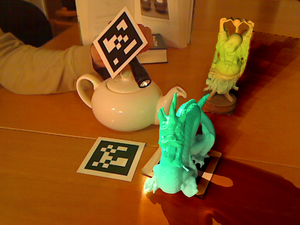

 paper
paper